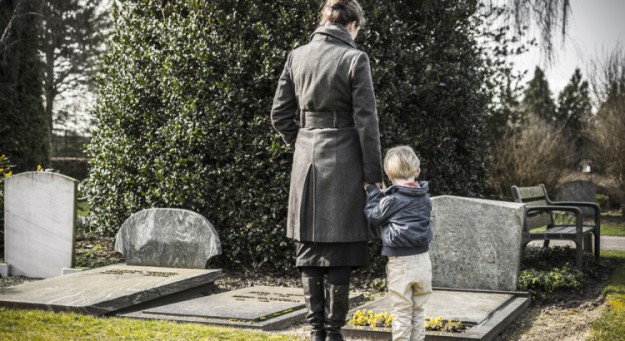Dealing with death: How to grieve?
mis à jour le 14 July 2015 à 18:33How does one overcome the death of a close relation? Knowing the steps of the grieving process is important to avoid being overwhelmed by the pain but these experiences are also completely normal.
A 4-STEP PROCESS
1-The shock
This refers to the consternation and perplexity that one feels following death. The announcement of the death of a loved one is unbearable. So, within the first hours, there is an unconscious mechanism for psychic protection, which aims to partially "anesthetize" our feelings. Some go as far as denying the situation.
2-Running away
During this stage, we feel the need to reconnect with the missing person, via photos or possessions. All our thoughts, acts and words are turned to them in a visceral need to maintain a link. We also have feelings of guilt or revolt at this stage.
3-Dismantlement and sadness
At this point, we realize painfully and confidentially the irreparable loss of the loved one. Very often, we will feel the need to withdraw during the first few months. However, we should not hesitate to cry and express our sadness - rather than isolating ourselves.
4-Restructuring and reconciliation
Very gradually, reconstruction occurs, whereby we return to 'normal' ourselves. However, we are no longer the same person we were before the bereavement.
The duration of each of these steps vary according to each individual, and can be a fluid process or not.
DARE TO SPEAK ABOUT IT
One of the key factors of grieving is to express our feelings freely. We should not be forbidden to speak about the dead person. Remember that memories shared with family or friends can cause the sorrow to reappear, but can also make us laugh and smile. If we bottle up our feelings, we run the risk of withdrawing into ourselves.
HOW TO HELP CHILDREN WITH THEIR GRIEF?
The four steps remain the same. The reactions of children may depend on how their parents cope with grief. Drawings are a good way to help the smallest child express themselves. For teenagers, the anger they feel is expressed in a more explosive manner, which is also completely normal.
We have to overcome these painful moments and take from our misfortune the will to live and, especially, to be happy. Happiness is a choice, while illness and grief are inevitable. Therefore, we should see grief as an opportunity to evolve, be more grateful for life, enjoy what we have and revise our priorities. To be conscious of death allows us to get the most enjoyment out of life.
Fabienne Broucaret




